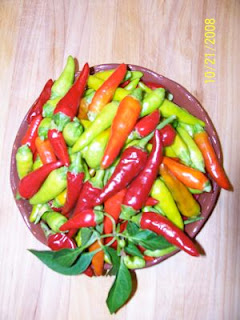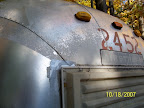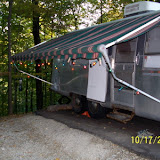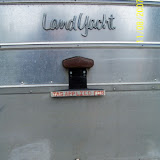
Teen Survival
Books and horses helped me to survive my teen years. Horses are still my totem animal, my symbolic world of strength, threat of death, survival, and confidence. Horses are another story, impossible to convey in prose. Maybe poetry, or poetry that will become songs, but not here, not yet.
Besides horses, I survived adolescence because of literature. The first people I encountered outside my own family who influenced my taste in literature were the Dearmans. I dated Bill, a twin, a musician (trumpet), a smart boy, an agnostic, and a tortured soul (spinal curvature, brace). We sat on a piano bench behind the band room and I noticed immediately that he smelled good. He always seemed to smell good. It was a combination of his deodorant, something spicy in his aftershave, and the fact that he showered a lot. Maybe that brace was hot and smelly. I miss that boy. I miss that girl, some, but that’s just the mist of nostalgia.
I might also credit my ninth grade English teacher, Mrs. Peterson, Rita, and her husband, Don, one wicked-smart couple. That’s another story for another day, because so many elements of mastery, self-confidence, and self-understanding are in my halo of good feeling and memory of them. They had to go and ruin that halo by becoming really true post-Moral Majority evangelicals, which in my mind makes the halo into something kitschy and two-dimensional, like a stage prop you don’t want to get too close to because then you’ll ruin your illusion. Before that, however, they were just young, smart, edgy, and they helped me move forward in my self-differentiation in very significant ways. I thank them, over and over. Wow, what a ham-bake this paragraph is turning out to be. I think I’ll get back to the Dearmans.
The Dearmans senior were a couple of erudite taste. In my memory, Mrs. Dearman – Ella -- never missed worship at the First Methodist Church. Mrs. Dearman always recognized the pieces I played on her piano. That could have come from having so many kids and insisting on piano lessons for each of them. That would have meant a lot of Chopin études over the years. Ella smoked like a chimney, and talked whild she exhaled her smoke. She always seemed to be interested in what I had to say about things. And, Mr. Dearman – Commodore – seriously, although most called him C. C. (Commodore Columbus Dearman – who names a baby that?) – walked around the yard with, in a plastic cup, white wine in his top shirt pocket. In a dry county. He was taciturn yet readily critical, in a kind of Bostonian Brahmin Southern Accent, of most things coming out of his sons’ mouths, and he generally ignored me. He is the first person I ever knew not on a farm with a garden but no pigs who had a compost pile. He experimented with this compost pile by placing some raw chicken in aluminum foil into the center of the pile. The heat of the composting process cooked the chicken. Bill and I agreed he was some kind of nerd, although that word did not yet have wide use. I think C. C., who never went to church, walked around half-toasted on his white wine a lot of the time. They even cooked with white wine. They had a special dish, prepared by C. C., for special occasions, called Chicken Supreme. It was very special to be invited over when that was being served. I think Bill’s graduation was such an occasion. So was the evening after Tony Dunnivant died in his motorcycle accident and I mentioned it at the table, and Bob, Bill’s twin, burst up from his seat and slammed out of the house. I found it hard to swallow my Chicken Supreme after that.
Commodore, as his wife called him, began a fallout shelter in the backyard in the 60s, but he never finished it. He worked somehow with the government or the military or something mysterious (to me) in Huntsville, that capitol of top secrets, that Pentagon of North Alabama, for which my hometown served as a bedroom community.
Much to my surprise, I ended up living and having the most significant of my early serious adult experiences in the town that was Ella Dearman’s childhood home. She had a cantankerous old mother-figure/stepmother/someone, a stout yet very small and spry, and did I say: old woman who was very smart and sharp: Clara Weathersby. I visited Clara's home in high school with Bill and his sister Sally and her husband Ed. To tell the truth, I was kind of scared of Clara. She loved to argue and debate, and she got me cornered at least once on that visit. Only much later in my life would I learn how to hold my own in a hot debate, and I hope one day beyond time, I can tangle with Clara again, since I could probably enjoy it now. So, anyway, Clara was a devout Methodist and managed single-handedly to defy the Mississippi Conference cabinet, and keep open and supplied with a pastor a little church on the west side of Hattiesburg, MS. Clara was formidable. Only after she died did they finally close that church. Or, maybe they did it when she became so feeble that they merged her little one-woman congregation into the West Lake United Methodist Church.
Anyway, back to Ella and CC and my literary development: I spotted a book on the shelf (they had many shelves of books), A. E. Hotchner’s Papa Hemingway, maybe in the tenth grade. I wanted to be erudite, too, so I took this book home and read it quickly. I knew Hemingway was important to my erudition because I saw the Spencer Tracy film of The Old Man and the Sea, and there had to be some kind of gravitas and smarts in having such a tragic fish story made so famous, I mean, other than Moby Dick, which is, of course, one of the ultimate tragic fish stories besides Jonah's. My dad read Hemingway. My dad read a lot of good literature. I think he should have had a better education, but he had what he had. And, my Mom, with her college education, had a good liberal arts background. She also read well. I think I had to get out of the house and see some other shelves in order to go back home to my parents and my grandmother and suspect, somewhere around my junior year of high school, that some good titles waited on their shelves.
I read Hemingway. Somerset Maugham. Evelyn Waugh. Oh, yes, I took my Evelyn Waugh novel to my high school English teacher, thinking that she would be impressed. Not only do I think she never read the novel, but she also never returned it to me. She was so beautiful, new, fresh, a homecoming queen in my childhood. I know now that I had a crush on her and wanted her to be impressed with my adult taste in literature. It was easy, therefore, to skip my senior year of high school English, take it the previous summer at Lee High School in Huntsville with Gail Baugh, and get on with moving out of high school and home, on to college at Athens College, which was threatened to be closed by the UMC since the merger with the EUBs, and the decision of the denomination in the Southeast to really begin taking integration seriously. There were too many colleges to keep afloat what with integration and preservation of the historic black colleges and those schools with more cachet, like Birmingham Southern and Huntingdon, and Montevallo. I got to talk to a state senator and a state representative at the college at a luncheon mixer with alumni, students, and legislators, to explain how that college had been such a significant presence in my life. And it was, truly. My first rock concert, where Black Oak Arkansas played, and the opening band exploded one of those huge glass lab jars, ten gallons big, with a tiny opening at the top, probably a lot like plastic water cooler jars now. I saved a piece of the jar, kept it for years. The lead singer said, “Bummer, man” and kept playing. We could not have been more terrified and impressed with the coolness of that. It was probably better than sex would have been at that age, but I really did not have the comparison in mind at the time. It would probably have been even cooler if I had been stoned like a lot of my friends were, but, I swear to you, I tried really hard to smoke pot all those years and some combination of fear, conscience, and a deep parental omniscience transference kept me from smoking pot.
The college survived. Not the sweet old liberal arts college with Methodist minister scholars, who raised their smart kids along with us regular civilians in the First United Methodist Church, and sent them to smart colleges like Birmingham Southern and Harvard and Yale, at least to Alabama. But, the State of Alabama made sweet old Athens College first into Athens State College, the upper two years of the baccalaureate to complete the county’s junior college, John C. Calhoun Junior College, the first two years or associates degrees. I guess they got a doctorate of education or business or nursing, one of the trades of higher education in poor southern state community college systems. The signs on the interstate now have rectangles in newer shade of green and reflective white, with “university” placed over the “college.” For us natives, however, who still live there or who return from time to time will always simply call it, The College. They have the Olde Tyme Fiddlers’ Convention every October over at “The College” with the backdrop of the four columns of Founders Hall, the four apostles, Matthew, Mark, Luke, and John.
To this day, I have never smoked pot. Sometimes I think I missed out on something important, sometimes I think I was spared a lot of heartache, like my brothers’ fates, one dead, one in the grip of addiction. I never even got to go to Raney’s at the State Line (TN) with people who went drinking and driving on the weekends after football games, or Saturday nights, or all the time in the summers. By the time I could drive and could to there myself, Jesus was the center of my life and I could not go, or did not go. My abstinence held pretty much until after high school. I mean, how can a girl in a dry county, with Jesus at the center of her life drink beer, especially when the one time she does, and tells her dad about it, he breaks down and cries? Wow, that kind of disillusionment is really hard to take. These days, why I think I can enjoy my whiskey and beer and wine and not fall into the abyss, I don’t know, maybe because I somehow do not have that gene. But, I missed out on the whole chemical hook that got my brothers. Maybe it will get me later, when I’m old and need more drugs. Maybe I’ll sooner die.
See, the whole problem with me and authority is really all about parental omniscience and x-ray vision, and believing my dad when he said he would not bail me out of jail if I got arrested for drugs. Drugs were very new in my youth. Only the most marginal of people did drugs before Vietnam and Watergate – poor white trash, and black people who lived in the country and frequented the joint at Dogwood Flat. Eventually, no one would be without drugs in the family, not the minister or the chief of police or the school superintendent or the college president, not even the preacher at the Church of Christ. But, Dad had no idea what he was talking about. He bailed my brothers out time after time, and in his desperate love lost their respect, and mine. He let them take him for all he was worth. Every penny. I kept going in my inward struggle, going for many years toward conformity with an edge of rebellion, overcompensating, seeking healing in Jesus, pre-Moral Majority evangelicalism and Jesus movement psychology and spirituality. Fortunately, I was a good reader. I could explore the edges of my duality in literature. I’m so grateful to literature and reading. Here I sit, writing my heart out about reading and literature.
Even as early as fifth or sixth grade, I pulled For Whom the Bell Tolls from the shelf in the library, before the new high school was built, before shifting around schools in the changing political dynamics of our town, even before learning how to change classes, use a locker, and have time for a drink of water and the bathroom. The librarian, Mrs. Wathen, whom I later began to call Sheila -- because I grew up and was college roommate with Virginia, and young adults get to call their childhood adult figures by their first names; it’s a rite of passage – Sheila told me that book was over my head. Not only on the shelf, over my head, where I was working as some kind of reward for boredom as a library assistant at my school, making all the spines and the Dewey Decimal System lined up perfectly with the edge of the shelf, but over my head intellectually and developmentally. To this day, I line my books up by pulling all the spines to the edge, then taking a book out and with its spine, on its side, slide all the spines together to a common even distance from the edge. Wow. Books can really get into your head. That denial by Mrs. Wathen was all the challenge I needed. I told my Mom about it, and she gently suggested that I could try the book, and see how I liked it.

Mrs. Wathen’s type of challenge and my growing loss of respect for my father provided a rich bed of rebellion and general lack of respect for authority. I honestly believed the administrators at my school were stupid, except my history teacher/guidance counselor/Sunday School teacher, Mrs. Elizabeth Brett. I lived a double life of wanting to be good, a good girl, and wanting to be smart, which was subliminally related to being bad, out of line, out of my place, and somehow different.
My grandmother had For Whom the Bell Tolls at her house, so in my many summer days and weekends at her house, I read the book, anyway. And, I read Rachel Carson's Silent Spring (a good basis for a budding environmentally conscious young adult who has an Earth Day sticker on her guitar case), Darwin’s The Voyage of the Beagle, and A Tree Grows in Brooklyn, and Taylor Caldwell, and Leon Uris, and Robert Ruark, the one who wrote The Winds of War and War and Remembrance, a powerful film for a young adult to see, all that WASP/Jewish clash of sensibilities, the antagonism and ambivalence that emerges in late teen years, making it necessary to begin both loathing and enjoying one’s social location, especially if it is white and middle class. I hated school enough to miss out on the Honor Society and good scholarships, but I took for granted that I would go to college and do pretty much what I wanted. I just didn’t really know what that was. Teach school in Athens, Alabama? Become a large animal veterinarian? Mostly, I majored in hating the Establishment, but really needing to please the same Establishment. Vietnam was too close yet, but eventually, it became literary stuff, and I can look back and sort out all of that social/cultural/personal chaos. It seems that these great upheavals of culture need years of unconscious ferment before good literature can emerge. What is that about?
Being a good reader always helped me through the awkwardness of my teen years. I knew I was different in a way that would not serve me well in life as I knew it then, so I cultivated the dual personae of inwardly nursing curiosity and outwardly wanting desperately to conform.
So, why did I go to college at UNA? Why not Birmingham Southern like other smart people in my class with good Methodist leanings? Who knows. But, my hero there had a very interesting intersection with the Petersons, The College, my growing interest in playing the guitar, and he was a really smart guy from the sticks: Bill Foster. Now, I wanted to impress Dr. Foster. I did not do so well in his Shakespeare class. I know now that I am an emotional learner, and I needed to talk and process all those plays and sonnets. But, the processing came after the pop-quizzes. That did not stop me from majoring in English. Being required to read a lot was like pizza to me, a treat and almost daily sustenance on campus when I had the money.
Thanks to Mr. Kingsbury, who recently passed away, and that pompous writer who shouted me down about his beloved England in creative writing, who told me I probably would not be able to write until after age 30, and Mr. Strickland. Lindsay. I was in over my head with the beat poets, but I will never forget the very proper and precise Lindsay Strickland. I understand him so much more now, and it’s not just the aging that I understand. I get him, his apparent solitary life, his quiet, almost secretive existence. Some kind of duality going on there, too, I think. Dr. Albert Sydney Johnston -- am I remembering his name correctly? the same as the Civil War General? -- another wee sissy, but kind of interesting to a student from a dry county who never met a queer she wasn't absolutely fascintated with -- who would come to class totally wasted, drunk as a skunk, lean on the podium and expound wistfully on whatever topic in poetry, with his very interesting old-South accent a bit like an Oxbridgian don, with a little listing and waver in his step, move toward the windows, weave back to the podium; or, just not show up at all.
Classics, “great literature” and creative writing – the hunger and appreciation of these have always sustained me. Thanks to my family, friends, and my education for giving me some structure. Please send me more and more suggestions for my list. My nightstand is piled high, and I will build more and more shelves. I am a reader. I love books. I will celebrate books as long as I can know and comprehend. Books let me know that I can not only escape into fiction, but can become something even more real than I can know without them. Oh, dammit, words fail. Maybe I'll find a good passage in a book to let you know how important this is to me, how much I need reading and books and writing to become me, to grow, to find life in words.
My mom died of side effects of Alzheimer's Disease. I want so much to be able to hold on to these words. So, just in case, I write all of this to you, a reader.


 back in the day, August 8, 2008. 8/8/08 -- that was not intentional, but what the bleep? One day, I realized I had over 100 friends. Somehow, that was shocking. It's been a long time since I've been "Annie Social" (in seminary). I think I've become more of an introvert over time.
back in the day, August 8, 2008. 8/8/08 -- that was not intentional, but what the bleep? One day, I realized I had over 100 friends. Somehow, that was shocking. It's been a long time since I've been "Annie Social" (in seminary). I think I've become more of an introvert over time.





















